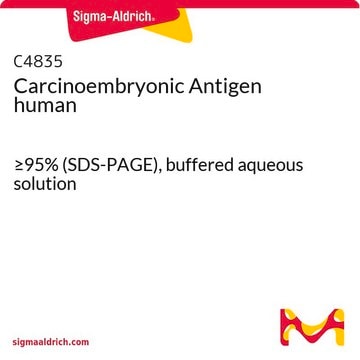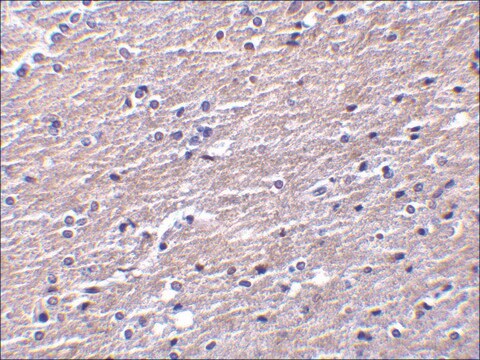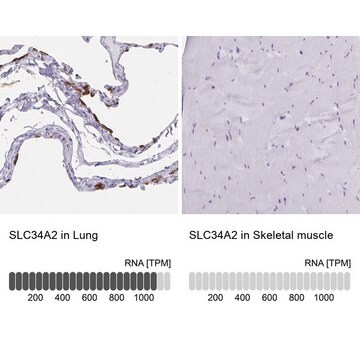C2331
Monoclonal Anti-Carcinoembryonic Antigen antibody produced in mouse
clone C6G9, ascites fluid
About This Item
Recommended Products
biological source
mouse
Quality Level
conjugate
unconjugated
antibody form
ascites fluid
antibody product type
primary antibodies
clone
C6G9, monoclonal
contains
15 mM sodium azide
species reactivity
human
technique(s)
flow cytometry: suitable
immunohistochemistry (formalin-fixed, paraffin-embedded sections): 1:8,000 using human colon carcinoma tissue
western blot: suitable
isotype
IgG1
UniProt accession no.
shipped in
dry ice
storage temp.
−20°C
target post-translational modification
unmodified
Gene Information
human ... CEACAM5(1048)
General description
Monoclonal Anti-Human Carcinoembryonic Antigen (CEA) reacts specifically with human CEA (CD66e, 180 kDa) from different types of malignant tissues. The antibody detects an epitope which is resistant to 30 minute oxidation by 1% sodium periodate solution in formalin-fixed, paraffin-embedded tissue sections. Enzymatic predigestion with proteolytic enzymes enhances immunohistochemical staining with the antibody.The product reacts with medullary thyroid cancers and also associates with cell surface and cytoplasm of malignant glands in colorectal adenocarcinomas. Additionally, the product reacts weakly with normal colon mucosa and occasionally reacts with bile canalicular and pancreatic acinar cells. However, the antibody does not react with other tested tissue such as term placenta, nor does it bind to non-specific cross-reacting antigen (NCA) in granulocytes.
Specificity
Immunogen
Application
Biochem/physiol Actions
Disclaimer
Not finding the right product?
Try our Product Selector Tool.
Storage Class Code
10 - Combustible liquids
WGK
nwg
Flash Point(F)
Not applicable
Flash Point(C)
Not applicable
Certificates of Analysis (COA)
Search for Certificates of Analysis (COA) by entering the products Lot/Batch Number. Lot and Batch Numbers can be found on a product’s label following the words ‘Lot’ or ‘Batch’.
Already Own This Product?
Find documentation for the products that you have recently purchased in the Document Library.
Customers Also Viewed
Our team of scientists has experience in all areas of research including Life Science, Material Science, Chemical Synthesis, Chromatography, Analytical and many others.
Contact Technical Service












